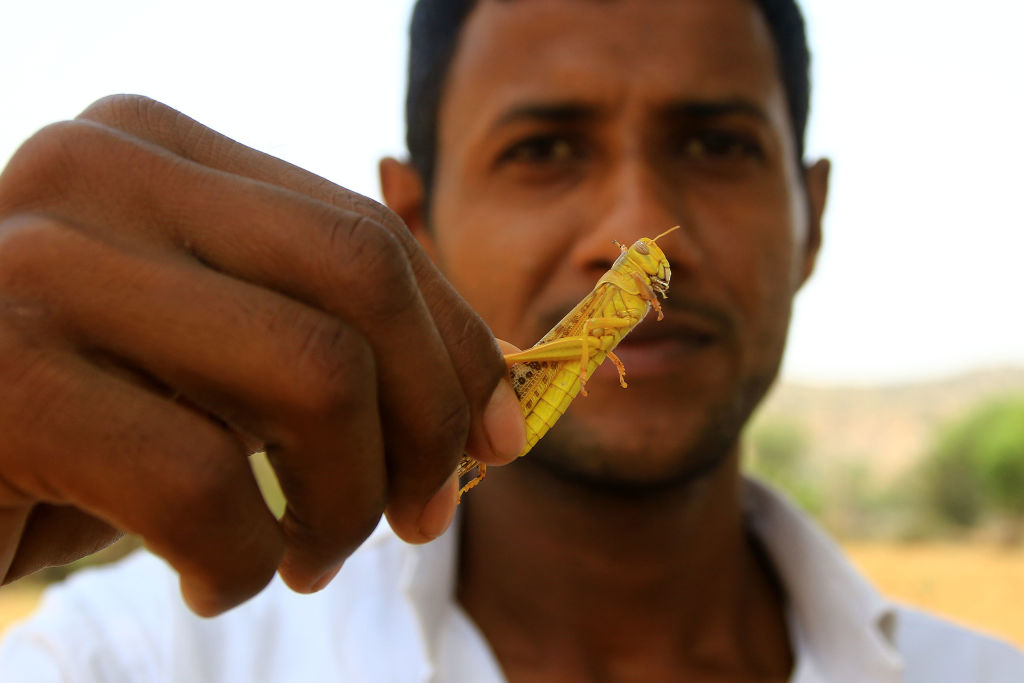
India has been hit by the worst locust storm the country has experienced in nearly 30 years, as the nation grapples with the ongoing coronavirus crisis that has overrun hospitals.
Swarms of millions of desert locusts that stretch up to 4 miles long crossed into the Western state of Rajasthan from Pakistan at the beginning of May and have since entered Uttar Pradesh, Madhya Pradesh, Maharashtra and Gujarat.
The Food and Agriculture Organization (FAO) believes that the current locust crisis was caused by the strong winds that followed the Cyclone Amphan that hit India and Bangladesh on May 20.
The FAO said that desert locusts are the most destructive of the all locust species because of their speed and their ability to quickly multiply. An adult locust can fly up to 93 miles an hour. The swarms have devastated crops in a country that was already grappling with an economic crisis as a result of the pandemic.
Hard-hit states are carrying out locust control operations that involve using drones to break apart swarms and fire trucks to spray pesticides. Rajasthan has been implementing these measures since May 22 but states across the country have since issued alerts to farmers, advising them to make loud noises and light fires to repel the locust. But the swarms are expected to remain for at least another few weeks.
“Several successive waves of invasions can be expected until July in Rajasthan with eastward surges across northern India as far as Bihar and Orissa followed by westward movements and a return to Rajasthan on the changing winds associated with the monsoon,” the FAO said in their Desert Locust Situation Update.
Earlier this year, East Africa was also hit by a locust outbreak, the worst the continent had seen in decades.
More Must-Reads from TIME
- Cybersecurity Experts Are Sounding the Alarm on DOGE
- Meet the 2025 Women of the Year
- The Harsh Truth About Disability Inclusion
- Why Do More Young Adults Have Cancer?
- Colman Domingo Leads With Radical Love
- How to Get Better at Doing Things Alone
- Michelle Zauner Stares Down the Darkness
Contact us at letters@time.com